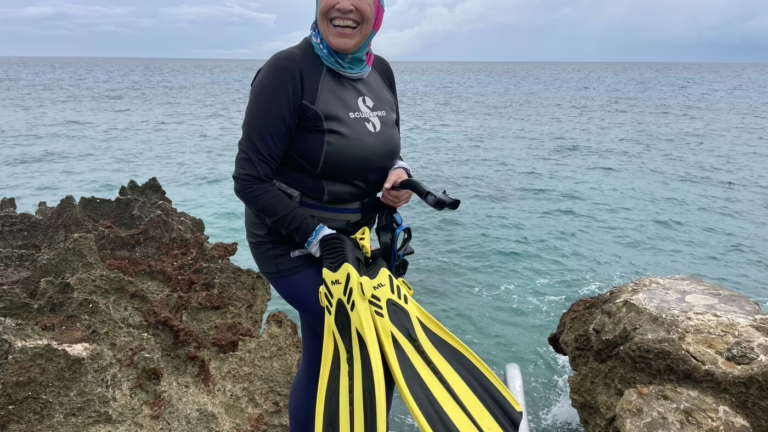SAN ANDRÉS, Colombia – Almost five decades after her first dive, Elvira Alvarado vividly recalls the vibrant coral reefs she encountered along Colombia’s Caribbean shores.
“The reef was teeming with life-lush greens, vivid oranges, and schools of fish darting about. The corals were massive and breathtaking,” she reminisces. “It was like stepping into a true paradise.”
Now 70, Alvarado remains an active diver, researcher, and mentor to emerging marine scientists. Her focus is on reviving Colombia’s imperiled coral reefs through innovative in-vitro fertilization (IVF) methods. Her unwavering commitment has earned her the title “the mother of Colombian corals.”
Coral reefs serve as critical habitats, offering nourishment, shelter, and spawning grounds for roughly 4,000 fish species. They also act as natural barriers against coastal erosion and bolster local economies by attracting divers and snorkelers.
Yet, these ecosystems face severe threats from diseases, pollution, and rising sea temperatures. Since the 1970s, over half of Caribbean coral has perished.
“I witnessed the reefs bleaching and dying firsthand,” Alvarado shares from San Andrés Island, where once-thriving coral gardens have largely turned barren.
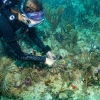
Juliana Vanegas, a marine biologist collaborating with Alvarado, explains the coral’s plight.
“Though the coral may still be alive when bleached, they stop feeding and gradually weaken,” she notes. “If this condition persists, the coral essentially starves to death.”
Diseases and heat stress also impair coral reproduction. To combat this, Alvarado and her team of about a dozen divers on San Andrés employ IVF techniques to assist coral regeneration.
Originally developed by Australian scientist Peter Harrison, this method involves harvesting coral eggs and sperm, fertilizing them in controlled lab conditions, and then reintroducing the young corals to damaged reefs. Alvarado has become Colombia’s leading advocate for this approach.
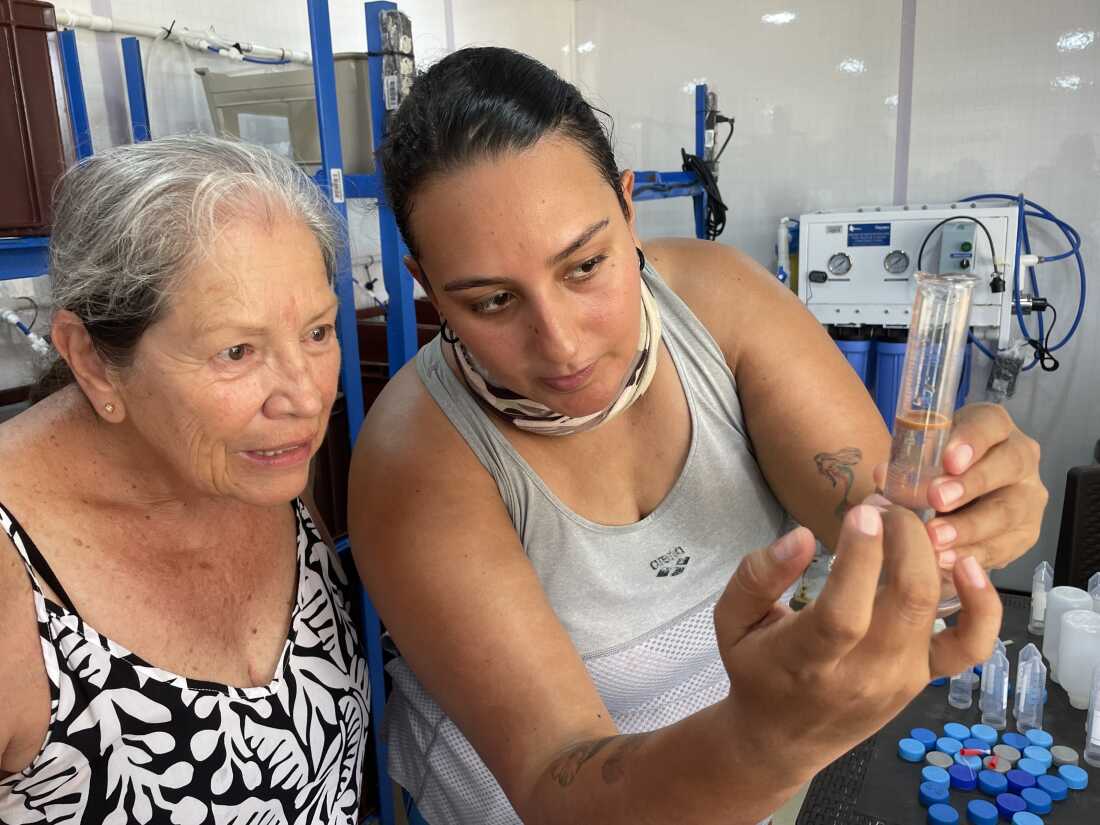
Elvira Alvarado and a colleague fertilize coral gametes in the laboratory, applying a groundbreaking method to rehabilitate degraded reefs.
John Otis/NPR
hide caption
toggle caption
John Otis/NPR
“We cannot halt the impacts of climate change or devastating diseases like Stony Coral Tissue Loss Disease, which emerged in 2014 and has spread widely,” Alvarado admits. “But we can strive to replenish the coral that’s disappearing.”
Alvarado’s fascination with the ocean began in childhood, inspired by TV shows such as Sea Hunt and Flipper, which featured clever dolphins outwitting humans.
Returning to Colombia in the 1960s, she became one of the nation’s pioneering female marine biologists dedicated to coral reef conservation. During her studies, she had the unforgettable opportunity to meet Jacques Cousteau, the legendary ocean explorer.
“We sat together and talked-it felt like a dream come true,” she recalls.
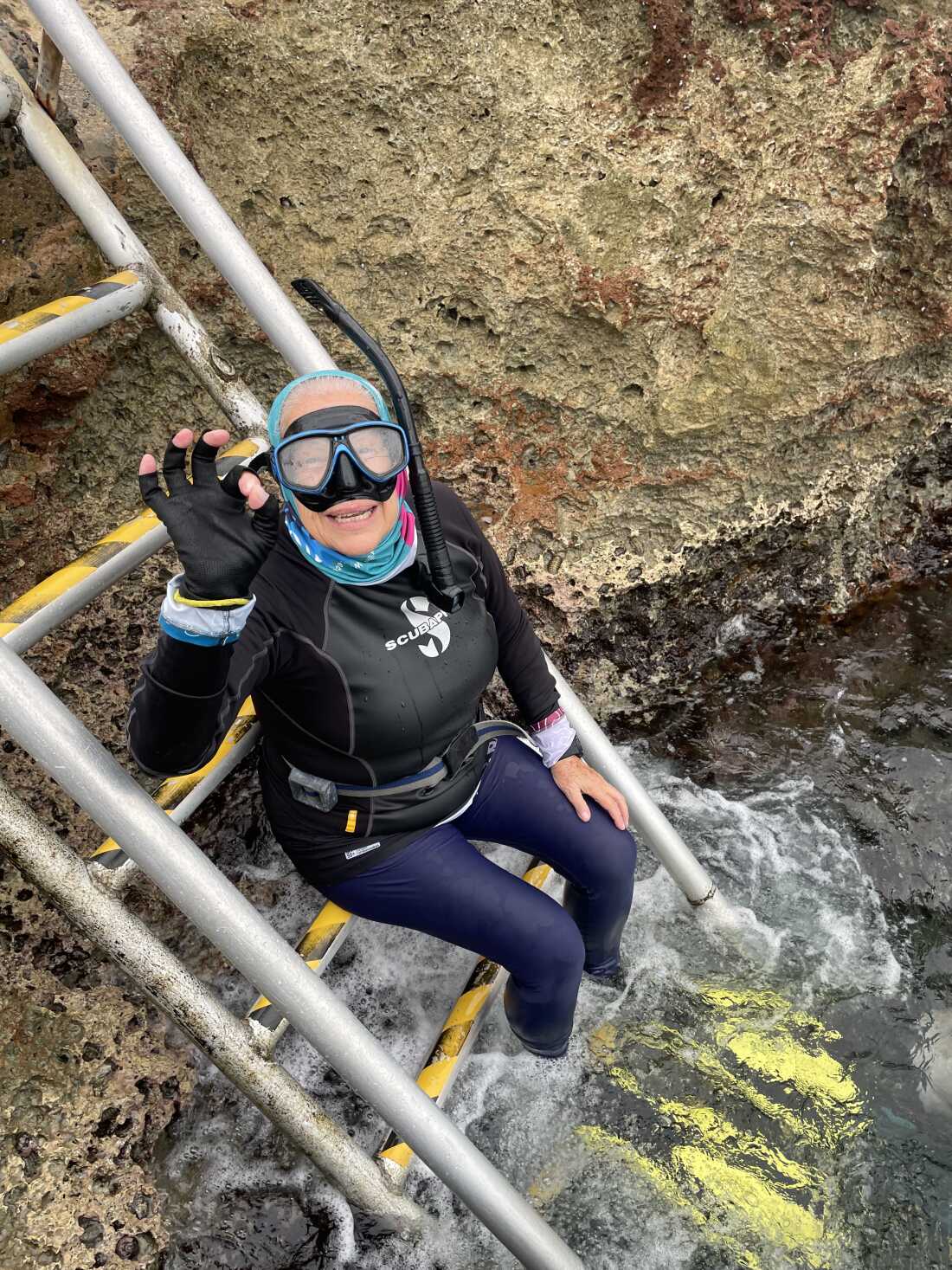
Elvira Alvarado pictured in the Caribbean Sea near San Andrés Island, Colombia. At 70, she continues to dive, conduct research, and mentor upcoming marine scientists.
John Otis/NPR
hide caption
toggle caption
John Otis/NPR
Alvarado excelled underwater, mastering free diving to depths of 72 feet without scuba gear. Initially, her research focused on shark-related cancer studies, but as coral degradation worsened, she shifted her efforts toward reef restoration by cultivating new coral colonies.
Coral spawning occurs only once annually, roughly a week after the full moon, making timing critical. Alvarado’s team on San Andrés has a narrow window to collect coral eggs and sperm during this event.
Underwater, Alvarado moves with precision. At about 30 feet deep, she and her colleagues place nets fitted with collection tubes over selected coral. On a subsequent night dive, they inspect the tubes. After a night of no success, excitement erupts when the next dive reveals successful spawning.
“They’ve released their gametes!” Alvarado exclaims before hurrying to the temporary lab.
There, the team combines eggs and sperm in water-filled containers. Under the microscope, the fertilized coral eggs resemble tiny clusters of creamy white raspberries. These coral larvae will be nurtured in coastal nurseries for six to twelve months before being transplanted back onto reefs.
By selecting genetic material from corals that demonstrate greater tolerance to heat and environmental stress, the team aims to cultivate more resilient coral populations. Alvarado emphasizes the challenge: growing coral faster than they perish.
Though the reefs may never regain the full diversity seen in the 1970s, she remains hopeful. “We will establish reefs capable of withstanding warmer oceans,” she asserts.
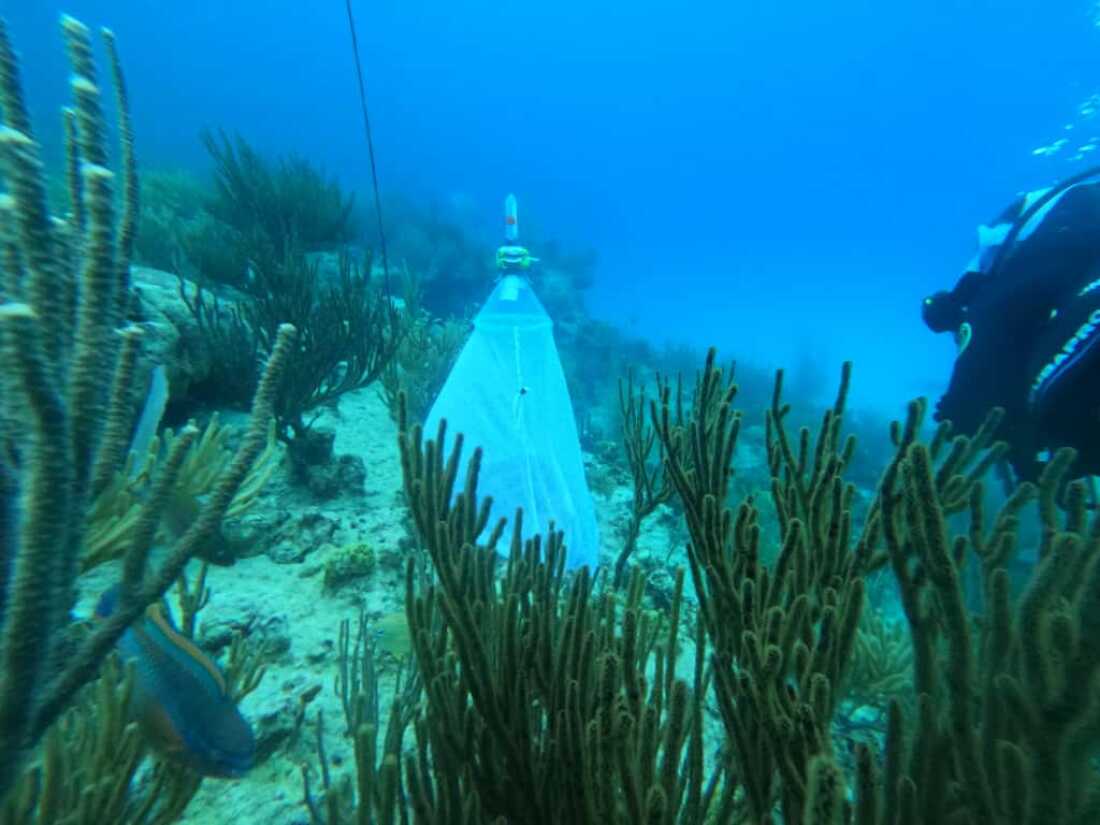
Nets are carefully positioned over coral colonies to capture eggs and sperm, a crucial step in fertilization and reef restoration efforts.
John Otis/NPR
hide caption
toggle caption
John Otis/NPR
Alvarado takes pride in having guided numerous young marine biologists, predominantly women, who admire her deeply.
“She’s an incredible source of inspiration,” says María Fernanda Maya, director of the Blue Indigo Foundation, which focuses on reef restoration. “She truly is Colombia’s mother of coral.”
When Alvarado eventually retires from diving, her impact will endure.
“When I began, it was just the two students and me,” she reflects. “Now look at what we’ve built. This work will carry on long after I’m gone-that’s the hopeful part.”






















